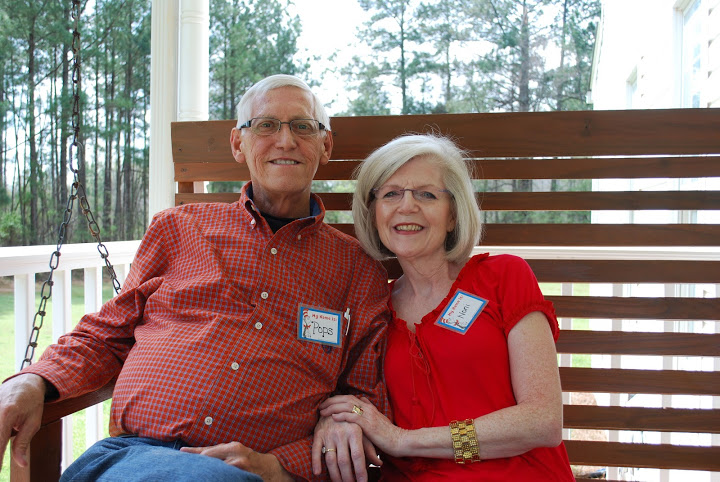Free to Share
When SueAnne Bassett learned that she had stage four cervical cancer eight years ago, her doctors gave her a 20 percent chance that she would live five years, and that was with full-blown chemo and radiation treatment. Then she learned about a hospital in Tijuana, Mexico that provided alternative treatment for cancer, and she knew immediately that that’s where she wanted to be treated. Although Georgia natives SueAnne and her husband, Mike, didn’t have health insurance to pay for the specialized treatment, they weren’t worried. They knew their needs would be met.
In 1999, the Bassett family joined Samaritan Ministries, a Christian-based network in which members pay for each other’s health expenses. One of three organizations[1] like it in the country, Samaritan members are exempted from the new federal health care law, the Patient Protection and Affordable Care Act. Samaritan was started in 1991 by contract painter Ted Pittenger out of his home in Peoria, Illinois. Pittenger had been a member of an affiliation called the Christian Brotherhood Newsletter which operated from a comparable standpoint of Christians sharing each other’s health burdens, but Pittenger thought he could make the process simpler and create a wider appeal. In 1994, the first members to join Samaritan began sharing needs with each other. Ten years later, more than 10,000 households around the country were members of Samaritan Ministries. To date, the group oversees more than 22,000 households who help share over $6 million in medical needs monthly.
Ancient Care
According to James Lansberry, executive vice president, Samaritan was birthed out of the idea that there is a fundamental difference between “health care” and “health insurance,” although the terms tend to be used interchangeably in today’s vernacular.
“Insurance is only 75 years old. Health care is as old as humankind,” Lansberry explains.
Samaritan is built around the belief that health insurance is not a prerequisite for quality, effective and compassionate medical care. For instance, free clinics around the country have been offering quality medical care for decades to those who can’t afford insurance.
By removing the middle man of insurance, Samaritan eliminates the need for hefty premiums (minus a moderate fee to cover the organization’s overhead) and connects people who help cover each other’s health care expenses directly.
Here’s how it works:
Member Jane Smith goes to the doctor and needs to get an X-ray. She has the X-ray and then receives a bill from her doctor’s office for $1,000. She sends the bill to Samaritan. The following month, Samaritan sends out a newsletter to all of its members with prayer requests for those who submitted medical needs the previous month. Two member families receive with their newsletter a slip of paper with Jane’s name and address on it. Each family mails a check for $355[2] directly to Jane, along with a note of encouragement. Jane uses the money to pay her bill.
As indicated in Jane’s story, Samaritan keeps costs low by expecting members to personally cover any incurred medical expenses up to $300. Beyond that “deductible,” members can request assistance for any individual need up to $250,000. Every month, member families of three or more pay a “share” of $355 toward another’s need; couples pay $300; and individuals pay $150. Needs and shares are matched randomly through Samaritan’s database. Typically, less than 10 percent of members submit a need in a given month, so most needs are completely covered by member shares. In the case that the total dollar amount of needs exceed shares, the needs are covered on a prorated basis.
Burden Sharing
Unlike an insurance plan, Samaritan doesn’t allow its members to submit bills for routine prescriptions, although prescriptions that are a part of a larger need are shared. Rather, Samaritan encourages its members to seek out discount prescription programs. They also won’t accept bills for routine or preventative check-ups.
Because of these stipulations, Samaritan might not be for everyone.
“This isn’t a cheap substitute for insurance,” Lansberry clarifies. “We’re not trying to please everyone. We’re trying to fill a niche in the Christian community.”
However, as the number of Americans with quality health insurance coverage is quickly shrinking, groups like Samaritans are playing an increasingly significant role. Samaritans, in particular, tends to be an excellent fit for those who wouldn’t be insured otherwise—particularly those in Christian ministry or those who are self-employed.
Samaritan requires each of its members to sign a statement of Christian faith, commit to attend church regularly, and agree to abide by a few moral guidelines that can have physical implications, particularly abstaining from extramarital sex, smoking, and drug and alcohol abuse. Outside of these explicit requirements, Samaritan is fairly hands off.
“We encourage Christians to eat well and live well,” said Lansberry. “We don’t ever have a definition of what good health practices look like . . . we want individual members to be in control of that.”
Lansberry often gets questions about preexisting conditions.
“If you haven’t had symptoms or treatment in the past 12 months, we don’t worry about it,” he explains. And no one is ever turned away or asked to pay more because of a preexisting condition. Although a bill related to the condition would not be included in the regular monthly newsletter, it would be published as a “Special Prayer Need”—a category designated for needs that don’t fall within the range of typical member share coverage or for bills that exceed $250,000. Members are given the opportunity to pray for and give above and beyond their monthly share amount to help those with exorbitant or unusual health bills.
In this way, Samaritan fulfills its vision to help people share each other’s burdens.
“There came a time that every day for weeks, my mailbox was so full from letters from Samaritan members that the mailman would have to bring them up to the door,” SueAnne remembers about the response to her cancer treatment.
She recalls in particular a small check she received from a 15-year-old girl included with this message: “Upon reading of your needs, I decided that what I was saving [my money] for wasn’t as important as what you were going through.”
By the time her treatment was complete and SueAnne was declared cancer free, Samaritan members had sent enough money to cover the entire cost of her highly expensive treatment, “almost to the penny.”
Five years later, SueAnne’s husband Mike was diagnosed with a rare liver disease and was given 12 to 18 months to live unless he got a transplant. Again, Samaritan members came through with letters of encouragement and contributions to cover his treatment and the transplant, which he received on June 18, 2012.
“Life happens to everybody. Everybody gets scary news. Everybody has something that breaks the heart,” SueAnne says. “But to have the support of a Christian organization like Samaritan is like having a huge network of families all around the world that truly cares for you and carries out the ministry to carry each other’s burdens. They become your stretcher bearers. That’s exactly what they’ve done for us.”
[1] The others are Christian Healthcare Ministries and Christian Care Ministry
[2] Or $300 or $150, depending on their share amount







